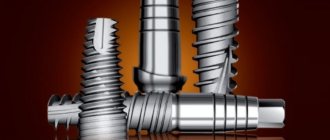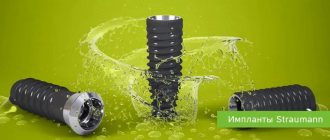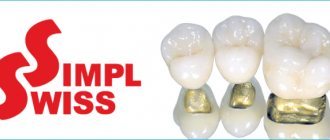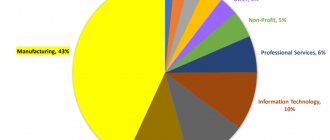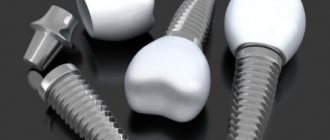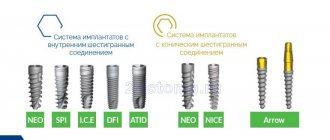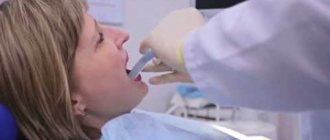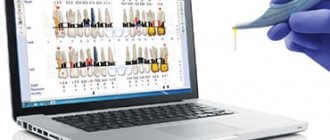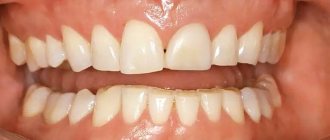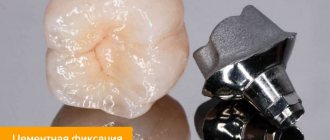When back in 1974, a small Swiss company released its first implants, no one could have thought that this was the first step towards world leadership in the field of implantology and restorative dentistry. Today, Swiss Straumann implants are known throughout the world. They are preferred by implantologists from all continents, because the products of this brand combine high quality, a scientific approach and a full set of related materials. Strauman implants don’t just restore your smile—they restore your self-confidence.
All the company's products are based on scientific developments. Therefore, the company has many technological breakthroughs in the field of dental restoration and implantation.
Straumann implant models
Straumann in Switzerland is continuously working to expand its product range to meet individual patient needs. In collaboration with the International Team for Implantology (ITI), new implantation models and technologies are being developed. Currently, the brand offers several options that differ in design and purpose. All models are united by innovative technologies:
- Bone Control Design
is a development that preserves the volume of soft tissues and the alveolar ridge. - Roxolid
is a titanium-zirconium alloy that is ideal for rapid osseointegration. This alloy is superior to titanium in its strength. Great for small sizes. Helps preserve bone tissue. Products made from this alloy have a lifetime warranty. - synOsta
is a connection that prevents movement of the abutment and ensures its precise fit. Makes it possible to try on, rearrange abutments, and take an impression if one is missing.
Materials
The manufacturer paid great attention to the development of biocompatible universal high-strength composites. Due to this, it was possible to make the implantation process more reliable and the result more durable.
The implants are made of class IV titanium. They do not contain aluminum and vanadium impurities. Thanks to the purity of the material, the quality of products increases, the risk of allergies decreases, and the time for osseointegration decreases.
The innovative material Roxolid was developed specifically for dental implantation. It consists of 85% titanium and 15% zirconium. This alloy is biocompatible. It ensures high-quality and rapid implantation in the bone. The strength of the structure allows artificial roots to be made shorter and narrower than those of conventional products. This makes it possible to reconstruct the dentition even in conditions of a lack of bone tissue.
Tissue Level
Products in this series are designed for implantation at the gum level. Not covered with a gingival flap during healing.
Standard
This is the first model of implants with a one-stage protocol. The preservation of bone and rapid restoration of blood circulation is facilitated by the design of the product and its SLA coating. The SLA surface of Straumann dental implants is a patented sandblasting technology followed by acid etching. The result is a surface that promotes rapid osseointegration (healing).
Studies that examined patients 10 years after the installation of implants with SLA coating confirmed a high survival rate - up to 98% and a low risk of peri-implantitis - less than 1%.
These implants are easy to care for, so it is better to install them in the back row, where it is difficult to reach with a brush.
Standard plus
These are variations on the Standard base. The Standard Plus has a shortened neck, they are installed where there are high requirements for appearance. Narrow Neck is used for crowded teeth, they are suitable for limited space. Short structures are used to replace back teeth. Tapered Effect implants have a special anatomical shape. It is a combination of a cylindrical shape at the root and a conical shape at the surface. They are used for transgingival (minimally invasive) transplantation immediately after tooth extraction.
Tissue Level Models:
- imitate the anatomy of teeth and fit precisely into the dentition;
- take root well, thanks to the special Roxolid alloy and product design;
- installed using templates, which increases accuracy;
- promote the formation of soft tissues due to the special design of the neck;
- allow the use of smaller products due to the strength of the alloy.
Tissue Level implants are installed at the level of the soft tissue of the gums. This simplifies the orthopedic stage of dental restoration.
Manufacturing technologies
The products are implantation systems that are implanted inside the jawbone and are capable of fully performing the functions of an anatomical organ.
The latest technologies are used in production, including the following:
- laser grinding of system elements;
- sandblasting;
- milling;
- polishing
All structures are made of durable titanium alloy, which eliminates problems during their installation and further use.
Ards dental implant system and installation protocol. Come here to get a closer look at domestic Konmet implants.
At this address https://dentist-pro.ru/implantaciya/proizvoditeli/cortex/detalnyj-obzor-modelej.html we will discuss the pros and cons of Israeli Cortex implants.
Bone level
This range is designed for restorations that meet high aesthetic requirements. Natural appearance is one of the advantages of Bone Level implants. They are manufactured using advanced coating technology - Straumann SLActive. The improved coating made it possible to implant in patients with contraindications to the conventional procedure. The healing period is reduced to 3-4 weeks, even in patients at risk. Bone regeneration improves in case of concomitant diseases. The implants are preserved after a course of radiation therapy.
Bone Level models are:
- reducing the level of surgical intervention;
- stimulation of bone tissue restoration;
- acceleration of osseointegration;
- preservation of soft tissue volume;
- complete imitation of a regular tooth.
The Tapered modification is used where high initial stability is needed - immediately after removal or in cases with loose bone tissue.
Scientific research confirms that high treatment results can be achieved in chronic and autoimmune diseases. In those rare cases when something goes wrong, the company provides a guarantee that the implant and abutment will be replaced with an equivalent one.
BEGO company from Germany
Semados dental systems are produced by a German company founded at the end of the 19th century. Initially, the company specialized in the production of dental instruments and gold foil for fillings. In 1910, the company founded a dental laboratory and began producing components and materials for orthopedic systems.
The company began developing and producing the first implants in 1990. Since that time, the company launched the production of instruments used for implantation. Today, Bego products are used in dentistry all over the world.
Indications and contraindications for installation
Installation of Straumann implants is indicated:
- after the removal of one or more teeth;
- in the absence of teeth as a result of injury;
- with aplasia (congenital absence of teeth).
For certain mental disorders, cardiovascular diseases, HIV, AIDS, and tuberculosis, doctors do not recommend installing Strauman implants.
Relative contraindications include pregnancy, breastfeeding, smoking, and neglected oral cavity.
Installation steps
The success of implantation largely depends on how carefully the procedure is thought out. Its components:
1. Assessment of the condition and treatment planning.
The implantologist analyzes the general condition of the patient and the condition of his oral cavity. If necessary, sanitation is carried out.
2. Surgical stage.
According to indications, sinus lifting, bone augmentation, and tooth extraction are performed. The implant is installed. Postoperative monitoring is underway. In the case of two-piece products, an abutment is installed after osseointegration.
3. Orthopedic stage.
An impression of the patient's teeth is taken. A permanent prosthesis is made and installed using it.
4. Control stage.
Monitoring and regular inspections are carried out to ensure that the structure is functioning correctly.
How the price is formed
Implantation is an expensive procedure. Therefore, it is important to understand why the prices for installing some implants are an order of magnitude higher than others.
The cost of implantation services is affected by:
- Manufacturer
The cost of Strauman, Nobel, Trait implants (ROOTT brand) is high because the names of these brands are associated with quality, a scientific approach and a lifetime warranty. Lesser-known brands don't invest as much in research and can afford lower prices.
- Implant model
Mini-implants, classic, one-stage - all have different production costs and therefore different prices.
- Clinic and equipment
Dentistry, with its own technical base and laboratory, saves money on intermediaries, and time by not having to go to different institutions or wait for a crown to be delivered from the other end of the city.
- The patient's oral condition
Simply placing an implant is one thing, placing it in a poor condition of the oral cavity is another. Sometimes treatment, cleaning, or other manipulations are necessary
- Accompanying illnesses
Often chronic diseases determine which implant can be placed and which cannot.
- Prosthetic material
Prices for metal ceramics, ceramics and zirconium vary and only the patient decides which material is preferable.
Design features
- The design combines two shapes - conical and parallel, due to which there is no gap between the implant and the gum. This eliminates the risk of food getting under the structure and bacteria breeding.
- The special shape of the internal fastening of the abutment is conical at the top and hexagonal thread at the bottom. Promotes reliable fixation, allows you to attach the upper part of the structures to the lower, avoiding the formation of gaps.
- The narrow rod makes the implantation procedure simpler and shortens the rehabilitation period.
- The manufacturing material is titanium alloy of the fourth degree of purification.
- The surface is processed in a special way and has a bionic micro-grooves design. This increases the area of contact between the bone tissue and the artificial root, which ensures the stability of the entire system and reduces the stress concentration of the bone.
- Self-tapping thread with reduced aggressiveness evenly distributes compression along the entire length of the implant and promotes high primary stability.
- The metal-ceramic crowns installed on implants of this brand fully correspond to the shape and shade of the natural tooth, which provides the system with high aesthetics.
Comparison of manufacturers
The table provides comparative data for manufacturers of premium products.
| Straumann | Nobel biocare | ROOTT | |
| Material | Roxolid | med.titanium | med.titanium |
| Acceptability | >98% | >98% | >98% |
| Immediate load options | Yes | Yes | Yes |
| Complete prosthetics | Yes | Yes | Yes |
| Turnkey price | From 100,000 rub. | From 100,000 rub. | From 60,000 rub. |
As can be seen from the table, all other things being equal, turnkey Straumann implants are priced close to Nobel brand products and higher than for ROOT products.
Prices for Strauman implants in Moscow differ little from clinic to clinic. If the price is significantly lower, this is a cause for concern. There are no low prices for real company products. Beware of fakes. Remember, Straumann products have no analogues.
Strauman implants - pros and cons of the system
The Swiss manufacturer has no functional shortcomings. The country of origin itself is synonymous with the highest quality among practicing implantologists around the world. The only negative aspects include the relatively high cost (compared to Korean or Israeli manufacturers). The premium implantation system is expensive, but this is fully justified by the long service life and excellent quality.
Swiss Straumann implants have the following advantages:
- lifetime manufacturer's warranty;
- maximum percentage of survival rate (according to its characteristics, the implant is close to a real tooth root, due to which it is perceived by the human body as its own);
- a large assortment suitable for all types of prosthetics, including for aesthetically important areas;
- Roxolid alloy made of zirconium and titanium reduces the likelihood of an allergic reaction to a minimum.
- painless installation procedure;
- short survival period (3-6 weeks, depending on the complexity of the operation and the general condition of the patient’s body);
- ideal primary stability and rough surface of SLActive, stimulating bone formation.
Reviews from experts indicate that Strauman products significantly expand the capabilities of implantologists. Now it is possible to restore beautiful and healthy smiles even to patients with complex cases and lack of bone tissue volume.
The Swiss dental implantation system meets the principles of freedom of choice and simplicity. The range of materials and surfaces offered by the manufacturer allows us to successfully perform dental prosthetics in almost any clinical situation.
Material checked:
Implantologist, surgeon, periodontist - Rozhnov Sergey Mikhailovich
